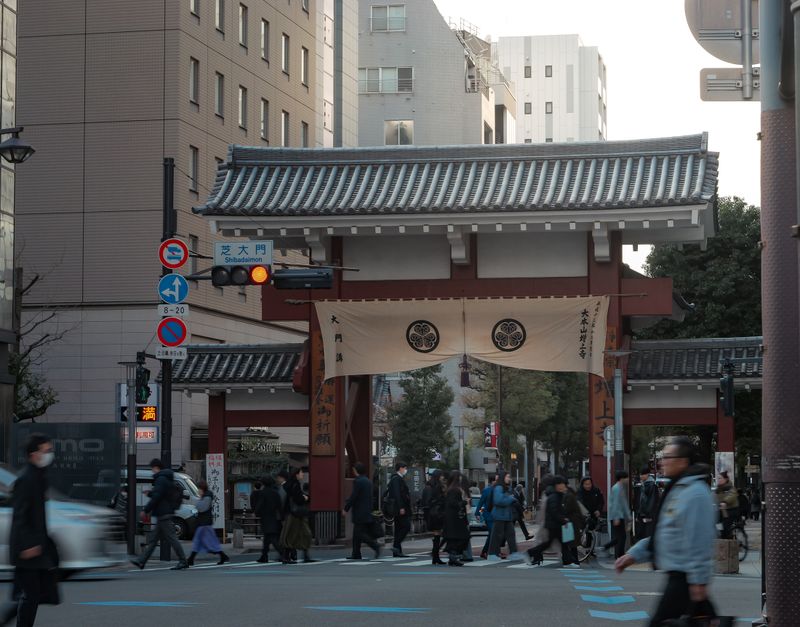Apr 4, 2024
Gov’t survey asks Japanese about life with increasing no. of foreign residents

Japanese people are evenly split on their attitudes towards an increase of foreign residents in their communities, according to a government survey.
In the survey on attitudes among Japanese towards living with foreign residents conducted under the supervision of the Immigration Services Agency, 28.7 percent of respondents said they viewed the increase in foreign residents in their communities as favorable, while 23.5 percent said it was unfavorable. 47.3 percent said they had no particular feelings about it either way.
The purpose of the survey is to help the government to better understand attitudes towards, and understanding of, its vision of realizing a harmonious society. Survey results are used to help the government plan and implement policies to inline with its longer-term “roadmap” towards life with foreign nationals and more immediate measures to welcome foreigners as it looks to address labor shortages.
Survey respondents were asked about their relationships with foreigners, the levels of discrimination and prejudice they may or may not face, and what can be done to achieve a more inclusive society, among other related issues.
Exploring these attitudes in more detail the survey presented respondents with a number of potential or perceived outcomes relating to an increase in foreign residents in Japan and asked to what extent they agreed with the sentiment.
45.5 percent of respondents agreed to some degree that an increase in foreign residents will have a negative impact on the local environment, in terms of security issues and conduct.
55.0 percent of respondents also agreed to some degree that the increase places a greater burden on social and public services (including language support) and the education system.
“When foreigners move to Japan, it is of course necessary for them to observe Japanese rules and manners, but I also think that Japanese people need to change their negative and closed-minded attitude toward foreigners. However, it is difficult for adults to change their minds.” Survey respondent comment.
Asked whether they felt an increase in foreign residents can alleviate problems related to the declining birth rate and aging population, 40.2 percent of respondents said they thought to some extent that it could. 24.4 percent said they thought that the increase could lead to less job opportunities for Japanese people. 66 percent said they thought this wouldn’t be the case.
The survey also asked respondents whether or not Japan’s foreign residents faced discrimination and prejudice. 68.3 percent answered yes, including those to some degree. When looking for work accounted for the most common situation where discrimination was thought to occur followed by interacting with neighbors, and when going through procedures at public institutions such as government offices.
Increasing opportunities for interaction between foreigners and Japanese, improving education about living with foreigners in schools, and improving consultation systems for foreigners who have faced discrimination, were seen by respondents as the most effective ways to eliminate this discrimination and prejudice.
63.1 percent of respondents agreed to some extent that an increase in foreign residents would lead to the elimination of prejudice against different cultures in Japan.
“I feel that there is still a lot of prejudice against foreigners in Japan. I think this is because there are few opportunities to interact with foreigners on a daily basis. I think it is important to create opportunities for interaction.” Survey respondent comment.
As for what respondents wanted of foreign residents in order to contribute to a harmonious society, making an effort to observe local customs and rules was the most popular suggestion, at 77.5 percent. This was followed by learning the language and culture (60.7 percent) and then somewhat of a drop to the next most common suggestion - to interact with locals and participate in local activities (37.8 percent).
The survey was carried out between October and November last year, receiving over 4,400 valid responses. Among the respondents only 7.3 percent said that they have had the experience of living abroad for more than three consecutive months. 41.5 percent said they have no foreign acquaintances and have never had any relationships with foreigners.
The immigration agency also carries out a similar survey targeting foreign nationals to gain a better understanding of their circumstances and the issues they face living in Japan. The survey is carried out in accordance with the government’s Comprehensive Measures for Acceptance and Coexistence of Foreign Nationals - a package of measures based on the establishment of the Specified Skilled Worker status which was introduced in April 2019.
The package of comprehensive measures differs from the government’s Roadmap for the Realization of a Society of Harmonious Coexistence with Foreign Nationals, formulated in June 2022. The roadmap focuses on more mid-to-long-term measures in order to realize the government’s vision of society of “harmonious coexistence with foreign nationals.”



0 Comments